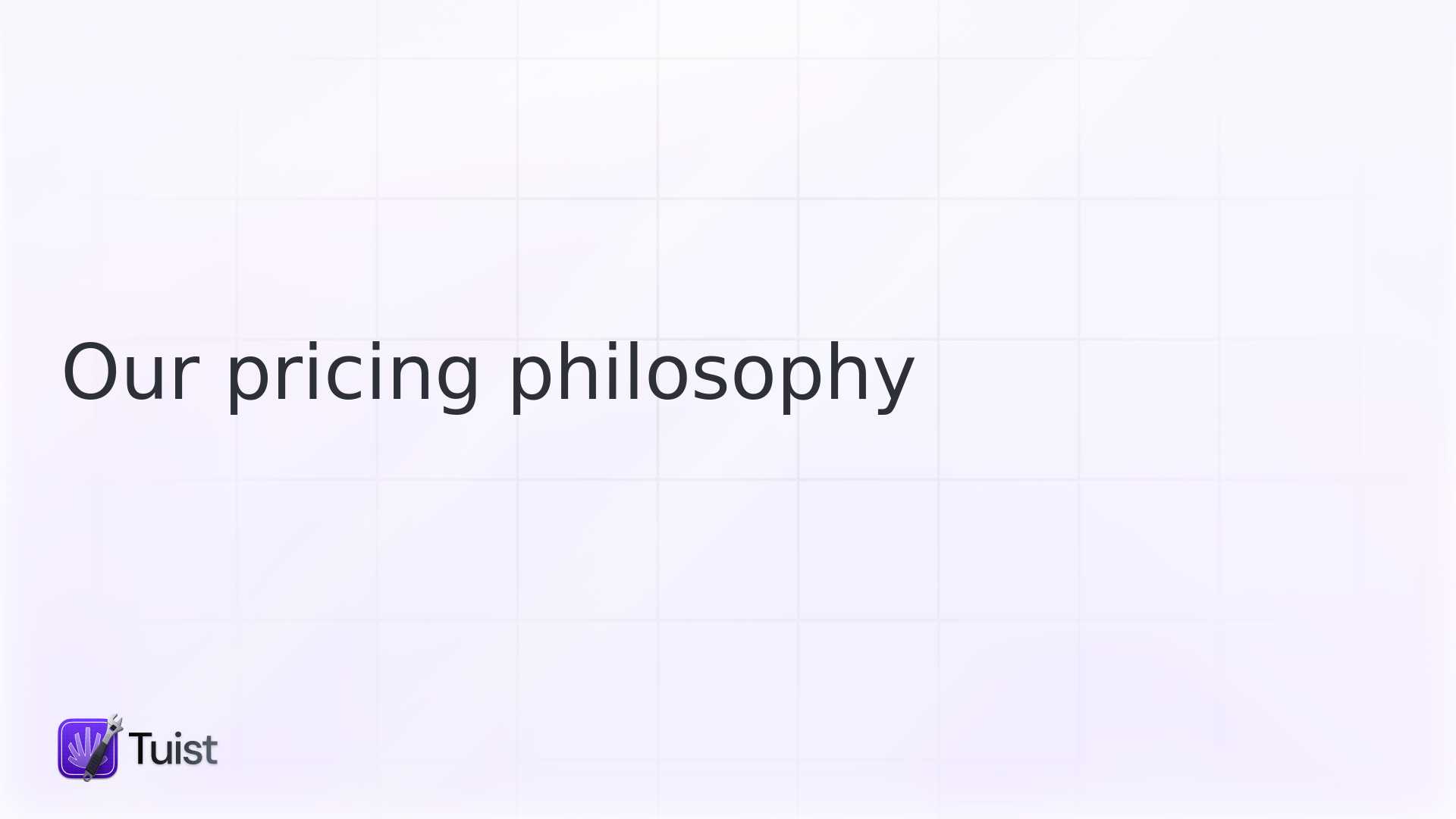

As we revamped our pricing page, we aimed to make it unique, transparent, and straightforward—quite different from the typical SaaS approach where pricing can feel like a guessing game. Many companies try to maximize what they can charge, but we take a different path, inspired by a "pay-for-what-you-use" philosophy. Just like a utility, everyone pays the same rates with no hidden markups. In this post, I’d like to unfold the philosophy behind that approach.
Our principles
These are the principles that guide our pricing philosophy:
1. We charge per usage
Many traditional companies hide their prices behind a "contact sales" button, leveraging your lack of bargaining power to charge as much as possible. We believe that's unfair. Every company should pay the same rate based on usage. Put simply, if your organization is larger, you’ll likely use Tuist more and pay more than a two-person startup—no hidden fees, just straightforward, usage-based pricing.
2. You don't pay if you don't use it enough
If you’re an indie developer or a small company that doesn’t use Tuist extensively, you don’t have to pay anything. We believe that’s fair—no financial barriers should stand in the way of using Tuist. We’re here to help people build better apps, and when you’re just starting out, you may not have the budget for costly tools. Don’t worry; with Tuist, you can get started without the expense.
3. We aim to be the cheapest at every scale
We want to be the cheapest and most transparent option in the Swift app development ecosystem. If you think we are not, please let us know.
Our model
We’re a commercial open source company. We build open source software and develop paid extensions that fund even more open source development. Our open source and paid products are complementary—each provides value on its own, with no strings attached. If Tuist provides value to you, great! It’s free to use. If your usage grows, even better—we’re here to support you at scale. And if you decide it’s no longer the right fit, we’ve made it easy for you to move on.
This model grew out of seeing too many companies burden customers with “contact sales” banners and choices that lock them into platforms. We wanted a different approach: transparency in our pricing, openness in our intentions, and a commitment to building something enduring. This model is our answer.
Thanks to this model, we’ll keep building more open source tools for the Swift ecosystem and supporting local communities dedicated to creating better apps.

